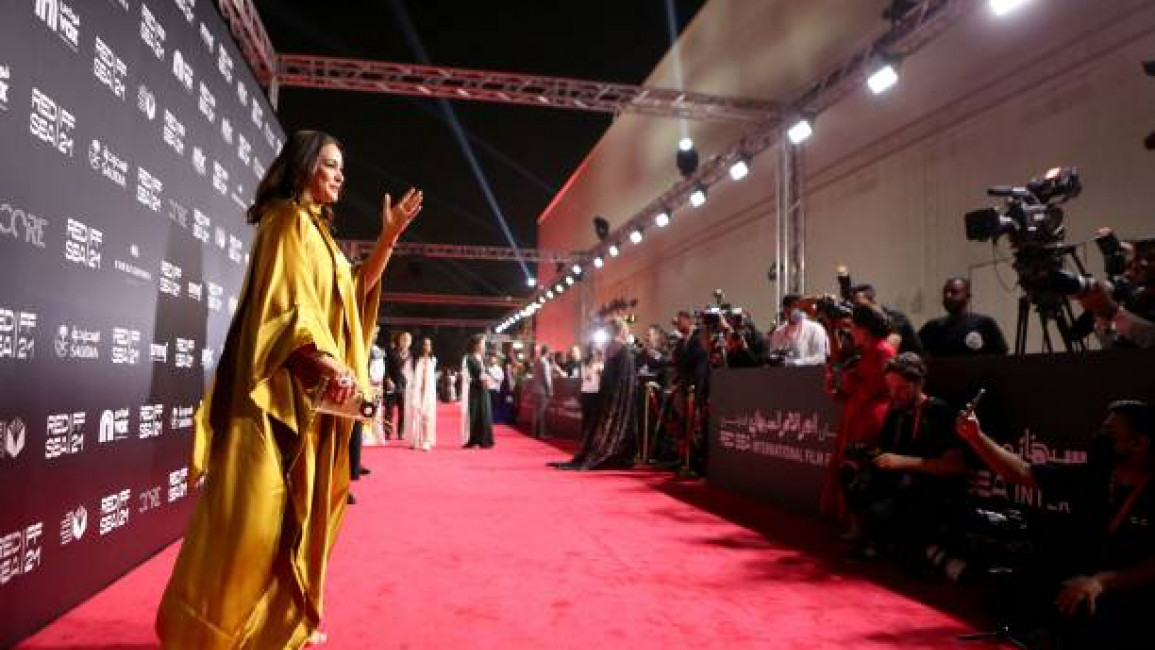Palestinian filmmaker sparks another controversy over latest film on Palestinian collaborators
The Palestinian ministry of culture said in a statement that it refuses the international representation of Palestine through the film "Huda's Salon" by the Palestinian film-maker Hani Abu Asaad, the Palestinian press reported on Sunday.
The ministry affirmed that it had no relation to the making of the film and had found it "weak and unrepresentative," with "a superficial picturing" of its themes.
Abu Assad's "Huda's Salon" had its world premiere during the Toronto Film Festival in September 2021 but only caught the attention of the Palestinian media last week, causing controversy due to its storyline among Palestinian commentary and on social media platforms.
"Huda's Salon" tells the story of a female hairdressing saloon owner in the West Bank during the second Intifada who puts her clients to sleep and photographs them in sexual postures, before blackmailing them into working as informers for the Israeli occupation.
The film also contains a short scene of nudity, which many criticized as inappropriate in an artistic work regarding the Palestinian struggle.
HUDA'S SALON is a political thriller from Palestine: https://t.co/hWVyfqFCvd#SIFTER #HudasSalon pic.twitter.com/PHidHDrLXj
— Jerry Williams (@JerryWi54279833) March 8, 2022
Mai Odeh, a Palestinian film producer told The New Arab that she watched the film and found it "unfair to judge Abu Asaad and his work," especially that some comments "have gone beyond criticism, accusing the director of betrayal and insulting him."
"Hani Abu Asaad is a committed Palestinian artist who has always been on the forefront of defending the Palestinian narrative," she added.
Some critics on social media referred to previous films by Abu Asaad that were also centred around the theme of collaboration with Israel. Namely the 2013 film, "Omar", and the 2005 film, "Paradise Now".
But Odeh dismisses these claims as simply not true. "He also made films about the second Intifada with different approaches, like "Rana's Wedding" and his short film, "Camera", that sheds light on the Palestinian reality during the Intifada in a creative and committed way," she added.
On the other hand, Palestinian writer and novelist Zeyad Khaddash told The New Arab that the way the film portrays the subject of collaboration is problematic.'
"The film shows a personal connection between the collaborator-recruiter and the figure of a Palestinian militant who supposedly interrogates her, which is very unrealistic and sends negative messages about the topic," Khaddash said.
"A film is not supposed to be a political statement, but being a Palestinian film, it is expected to portray the way the Palestinian society remembers its tragic experiences in a realistic way to help build a solid narrative," he added, but also stressing that he is "against personal insults and accusations of betrayal" and those are "not legitimate criticism."
"Huda's Salon" is not the first work by Hani Abu Asaad to garner controversy.
In December of last year, a film co-directed by Abu Asaad, titled "Amira" was withdrawn from theatres in Jordan after a wave of criticism in both Jordanian and Palestinian media and social platforms due to the way its plot engaged with the topic of sperm-smuggling and Palestinian prisoners detained by Israel.

![Trump's warm greeting to Netanyahu contrasted with Kamala Harris's critical reception [Getty]](/sites/default/files/styles/image_330x185/public/2024-07/GettyImages-2162908988.jpg?h=69f2b9d0&itok=OLc5dL88)
![The brutal assault on Khan Younis has killed dozens and displaced thousands more [Getty]](/sites/default/files/styles/image_330x185/public/2024-07/GettyImages-2162526709.jpg?h=d3eda8cf&itok=n5N-o8p5)
![Members of the Algerian delegation threw roses into the Seine [Getty]](/sites/default/files/styles/image_330x185/public/2024-07/GettyImages-2162980872.jpg?h=199d8c1f&itok=h_3o_TOL)